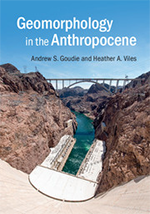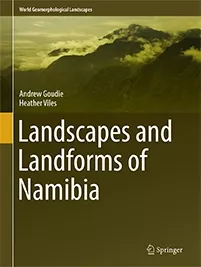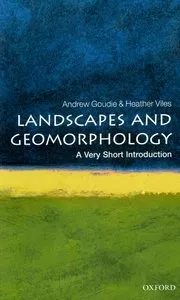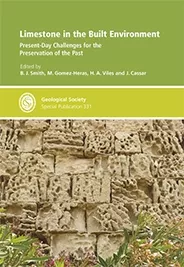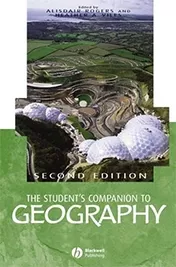Professor Heather Viles
Professor of Biogeomorphology and Heritage Conservation
Senior Research Fellow at Worcester College, Oxford
Director of the Oxford Resilient Buildings and Landscapes Lab
Member of the Environment Research Doctoral Training Partnership
Professor of Biogeomorphology and Heritage Conservation
Senior Research Fellow at Worcester College, Oxford
Director of the Oxford Resilient Buildings and Landscapes Lab
Member of the Environment Research Doctoral Training Partnership
Academic Profile
Heather Viles is a geographer with major interests in geomorphology and heritage science. Much of her research focuses on the application of science to heritage conservation. She is Honorary Professor at the Institute of Sustainable Heritage, University College London. She leads the Oxford University Heritage Network.
Heather obtained an MA in Geography from the University of Cambridge, and a DPhil from the University of Oxford. Her DPhil thesis focused on the role of microorganisms in weathering limestone and was based on fieldwork on Aldabra Atoll in the Seychelles. After completing her DPhil, she undertook post-doctoral research on the contribution of acid rain to the deterioration of English cathedrals.
Heather was awarded the 2015 Ralph Alger Bagnold Medal from the European Geosciences Union for her role in establishing the field of biogeomorphology and the 2019 Melvin G. Marcus lifetime career award, Geomorphology Specialty Group, American Association of Geographers. In 2020 Heather was awarded the Founder's Medal by the Royal Geographical Society with IBG. She is also a Fellow of the British Society for Geomorphology.
Heather has considerable academic administrative experience, having been Director of Undergraduate Studies (2008-2011), Director of Research (2012-2015), and Head of the School of Geography and the Environment (2015-2019), as well as Vice Provost of Worcester College (2012-2014). She is now President of the British Society for Geomorphology (2019- ), having previously been Chair from 2012 to 2014. From 2008 to 2011, she was Vice-President (Expeditions and Fieldwork) of the Royal Geographical Society with IBG. She was on the advisory panel of the £6.5 million AHRC/EPSRC Science and Heritage Programme from 2008-2012, and was also a member of the National Heritage Science Strategy steering group co-ordinated by English Heritage and charged with developing a UK-wide Heritage Science Strategy to shape UK-wide policy over the next 25 years. Heather also represents the University of Oxford as a trustee of the Oxford Preservation Trust. She is one of the Senior Editors of Earth Surface Dynamics, having served for 6 years as an Associate Editor of Earth Surface Processes and Landforms, and is also on the editorial boards of Transactions, Institute of British Geographers and Atmospheric Environment.
Over the years, Heather has carried out field-based research in NW Australia, South Africa, Namibia, Washington State, the Atacama Desert in Chile, South Germany, the Sahara Desert in Libya and NW China, as well as many places within the UK.
Current Research
Prof. Viles' research is highly interdisciplinary and involves studies at the interface of geomorphology with ecology, engineering geology, environmental chemistry and materials conservation. In recent years she has focussed on three specific themes in her research, namely:
- Biological contributions to geomorphology;
- Weathering, geomorphology and landscape evolution in extreme environments (hyper-arid, coastal, cold, and Mars); and
- Building stone decay and conservation.
She maintains a strong interest in developing and applying novel techniques and ideas to the study of these themes, including 2D resistivity surveys using Geotom equipment, and the Equotip hardness tester. Heather also has a strong interest in the practical applications of 'green' methods of conserving cultural heritage (using plants, animals and microorganism communities) and linking this to biodiversity conservation.
Heather runs the Oxford Resilient Buildings and Landscapes lab (OxRBL) which has extensive laboratory facilities and a field test site at Wytham Woods near Oxford.
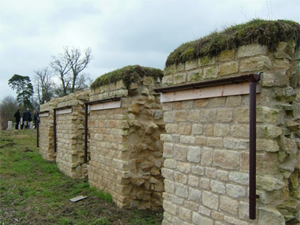
In recent years her research has been funded by EPSRC, AHRC, the Leverhulme Trust, University of Oxford Fell Fund, Historic England, the Royal Society and NASA.
Selected Research Projects
- Built Heritage Research Initiative
Funded by the Getty Trust, and carried out in partnership with the Science Department, Getty Conservation Institute, Los Angeles, USA - Heritage Heads
Funded by the University of Oxford's Diversity Fund and Van Houten Fund. - Science-based heritage conservation on the Silk Road: Learning from Nature
Funded by EPSRC and the Royal Society, and carried out in partnership with Prof Qinglin Guo, Head of Conservation, Dunhuang Academy - Climate change, ‘greening' of masonry and implications for the decay of built heritage and new build
Funded by the EPSRC and carried out in collaboration with Queen's University Belfast and Centre for Ecology and Hydrology. Find out more about the Conserving Stone Heritage project and view video resources.
Teaching and Supervision
Heather welcomes applications from students wishing to undertake graduate research in any aspect of biogeomorphology and heritage conservation.
Current Graduate Research Students
| Kenta Sayama | From datapoints to heritage recognition -establishing geoheritage and geocultural values of Quaternary palaeoenvironmental sites in South-east Arabia |
Recent Graduate Research Students
| Kathryn Royce | Assessing the Stability of Mineralogical Collections in Museums |
| Tim Baxter | Biodiversity and bioprotection of historic maritime structures: a possible win-win? (jointly supervised by Dr Martin Coombes and Prof Heather Viles) |
| Dáire Browne | Breathing Stones - developing laser spectroscopic methods to study moisture uptake and release by historic limestone in polluted urban environments (jointly supervised with Prof Grant Ritchie, Chemistry) |
| Blen Taye Gemeda | A holistic approach to diagnosing the deterioration of rock-hewn structures in Lalibela, Ethiopia |
| Richard Grove | A Holistic Approach to Evaluating the Performance of Consolidants on Sandstone |
| Katherine Jang | 'Moss on Rocks': Evaluating biodeterioration and bioprotection of bryophitic growth on stone masonry |
| Yinghong Wang | Studying deterioration of sandstone cave-temple in western China and preventive conservation strategies for its preservation |
| Michelle Lanzoni | Rain Events and Recharge Processes in the San Luis Valley of Southern Colorado |
| Martin Michette | Reigate Stone at the Tower of London: Mitigating Problem Stone decay in urban environments |
| Jennifer Richards | Learning from nature: evaluating site-based conservation approaches to mitigating climatic risks to earthen heritage sites in NW China |
| Lucie Fusade | Designing and evaluating repointing lime mortars for the conservation of historic buildings in highly exposed environments |
| Scott Allan Orr | 'Wet walls': developing 4D moisture monitoring techniques for stone masonry |
| Samin Ahmad | What controls algal greening of sandstone heritage? An experimental approach |
| Cristina Cabello Briones | Effects of open shelters on the preservation of limestone remains at archaeological sites |
| Katrin Wilhelm | Improving non-destructive techniques for in situ stone weathering research |
Selected Publications
